How to Vote
- Election Day is November 3, 2020! All registered voters should get a ballot in the mail in October.
- You can check your registration status here: https://www.vote.org/am-i-registered-to-vote/
- If you are not registered to vote, you can register up until Nov. 3rd and vote in-person that same day.
- Mail-in ballots must be received by Nov. 3rd to be counted. Mail back your ballot as soon as possible before October 24th.
- You have until 7pm on Nov. 3rd to drop-off your ballot or vote in-person.
- Drop-off boxes and polling centers can be found at: www.govotecolorado.gov or on your ballot
Accessible voting machines for people with disabilities are available at every polling center! Remember you must provide ID to vote in person. For a list of acceptable identification go to: https://www.sos.state.co.us/pubs/elections/vote/acceptableFormsOfID.html
Things to Know
- You do not have to vote on the entire ballot for it to be counted! For example, if you only want to vote for President of the United States, you can leave the rest of your ballot blank. Vote for the people and issues that you understand and feel comfortable choosing.
- FAQ for voters with disabilities: https://www.sos.state.co.us/pubs/elections/FAQs/ElectorsWithDisabilities.html
- It is ok to ask for help filling out your ballot. Just make sure the choices are your own!
2020 Statewide Ballot Measures
Proposition 113: National Popular Vote
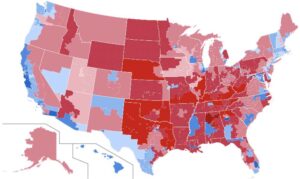
This bill would change the way Colorado and its electoral college vote for President of the United States. It would make Colorado’s electoral college choose the candidate who wins the most number of votes across the whole country.
- The electoral college is a group of officials in each state who help decide the President and Vice President.
- Currently, our electoral college chooses the candidate who wins the most votes across the state, not the country.
- This means that sometimes the new President is not the person who got the most individual votes.
- Colorado would be joining 14 other states who agree to follow the national popular vote.
People who agree say: This bill ensures every person’s individual vote counts equally. It will encourage candidates to focus on issues that affect the entire country, not just certain states.
People who disagree say: We should protect our state’s unique vote. This bill puts too much power in the hands of bigger states like California, who have different needs and beliefs than Colorado.
Proposition 114: Restoration of Grey Wolves

This bill allows Colorado Parks and Wildlife to bring back endangered Grey Wolves to certain places in Colorado by 2023.
- Grey wolves used to be found across the U.S. but their population has declined due to human activities like hunting and trapping. Wolves eat other animals like deer and elk.
- Grey wolves would be re-introduced to designated land in western Colorado.
- CO Parks and Wildlife cannot force any land, water, or resource use restrictions, like taking away land, on private landowners to further the plan.
- CO Parks and Wildlife will fairly pay back owners for any losses of farm animals, like cattle, sheep, and horses, caused by the grey wolves.
People who agree say: It is important to protect and help endangered species like the grey wolf. The wolves will be good for Colorado’s ecosystem (nature and animals) and need our help to grow their numbers.
People who disagree say: Grey wolves are a threat to livestock and farm animals, who ranchers depend on for their work and money. This endangered species can return on its own without our help.
Proposition 115: Prohibition on Late-Term Abortions
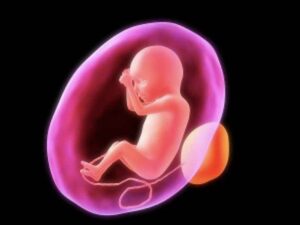
This bill bans women who are pregnant from ending their pregnancy (called abortion) after the fetus is 22-weeks along, or about 5 months pregnant. Any doctor who performs an abortion like this could be charged with a crime, fined, and suspended.
- The bill does not ban abortion that is immediately required to save the life of the pregnant person if they are physically threatened.
- The bill protects the person getting the abortion from being charged with a crime. Only the doctor who performs the procedure will face punishment.
- Colorado currently allows abortions at any time during a pregnancy.
People who agree say: Most other states have laws banning abortions later in pregnancy. This bill gives women time to make their decision before 22-weeks and protects the rights of the unborn child.
People who disagree say: Every pregnancy is unique and women should have the right to choose what’s right for them and their health. This bill does not help victims who become pregnant after rape and incest. Bans like this make it easier to pass harsher abortion laws in the future.
Proposition 116: State Income Tax Rate Reduction
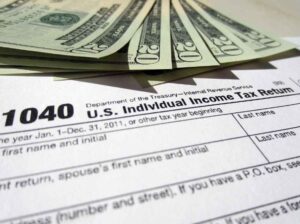
This bill would lower the state income tax (money taken from most worker’s paychecks) from 4.63% to 4.55%.
- People will pay less tax and the government will make less money.
- State income tax helps the government pay for its programs. Most of that money is spent on health care, education, human services, and other state programs.
- With this bill, someone who makes $25,000 a year would pay about $20 less in taxes. Someone who makes $1 million a year will save about $800.
People who agree say: This will help taxpayers keep more of their money. People will have more money to spend on local businesses and help the economy. The state budget will be fine without this extra money.
People who disagree say: This will hurt government services and social supports (like transportation and Medicaid) that have already been cut. Only people who are very wealthy will benefit from this small decrease.
Proposition 117: Voter Approval Requirement for Creation of Certain Fee-Based Enterprises
This bill would require voters to approve the creation of any new state programs who charge fees (called enterprises) that make over a certain amount of money.
- Colorado has a “bill of rights” for taxpayers called TABOR that says any tax increases must be approved by voters.
- Some government agencies are paid for by tax money. Other programs like universities, the lottery, and state parks, are paid for by the money they charge people to use them, or fees. These programs are called enterprises.
- This new law would apply to any new enterprises that will make more than $100 million during the first five years they are operating.
People who agree say: This bill gives more control to Colorado voters over the way the state earns and uses money. Fees are paid by voters just like taxes, so we should have the right to vote on them too.
People who disagree say: Enterprises help pay for important government services without using tax money. Only the people who use and benefit from those programs have to pay for it. This bill could limit the amount of enterprises and force the government to cut programs or use tax money instead.
Proposition 118: Paid Family and Medical Leave Insurance Program
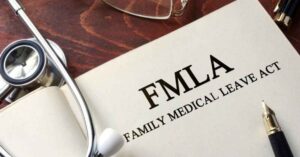
This bill will require Colorado employers to give certain employees 12 weeks of paid time off to help themselves and their families during medical emergencies.
- Reasons someone can take paid medical leave include childbirth and adoption, sudden illness of yourself or a family member, and safety after abuse and sexual assault.
- It gives people time off to help sick family members without losing their whole paycheck. Workers can earn up to 90% of their regular check, or up to $1100 per week.
- Workers who have been at their employer for at least 180 days cannot lose their job for taking medical leave.
- For the first two years, employers and worker will both pay for the program. This means about 1% of each worker’s paycheck will be taken.
People who agree say: This bill helps protect people’s jobs and money while also giving them the time to take care of themselves and their families during emergencies. People will not be forced to choose between their job and their family’s health.
People who disagree say: This bill would force people to pay for something they may never use. It also puts unfair costs on employers.
Proposition EE: Cigarette Tobacco and Nicotine Products Tax
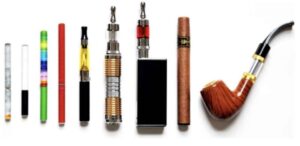
This bill would make products like cigarettes and vapes cost more money for customers. That extra money (called taxes) will help pay for school programs.
- This will create a tax on e-cigarette and vaping products the same as other tobacco products like cigarettes and cigars.
- It will slowly increase cigarette/tobacco taxes over time. Cigarettes will cost at least $7.00 a pack after January 2021.
- The bill also creates a minimum tax for moist snuff products like “chewing tobacco” or “dip”
- Taxes collected will help fund programs like free preschool, rural schools, health care including Medicaid, affordable housing, eviction help, and programs to prevent youth tobacco use.
People who agree say: Tobacco and nicotine products are dangerous and unhealthy. When cigarettes and vapes cost more it helps prevent smoking and tobacco use. The extra taxes earned will help programs and schools who have lost a lot of money since the COVID-19 pandemic began.
People who disagree say: Some people use vaping as a way to quit smoking, so adding tax to vaping products is unfair. The higher prices hurt buyers who will have to pay more and business owners who might sell less products. Colorado shouldn’t rely on tax money like this to help pay for programs.
Amendment B: Repeal Gallagher Amendment
This bill gets rid of a law called the Gallagher Amendment that says how property taxes (money paid by people who own homes, buildings, and land) are decided.
- Property taxes help pay for services like police and firefighters, hospitals, transportation, and K-12 education.
- The current Gallagher amendment keeps property taxes on homes lower and property taxes on businesses and farms higher.
- Gallagher also means tax rates are the same across the state. This means rural communities make less tax money and have less to spend on those important services.
- The new bill will keep tax rates for homeowners and business owners the same for the next 4 years. Any increases to tax rates will have to be voted on.
People who agree say: The Gallagher amendment leads to higher and unfair taxes on small businesses and farmers. This new bill will make sure property taxes stay the same and can only be raised by the people’s vote. It will also prevent financial cuts to schools, hospitals, fire protection, and other local services in many areas of the state.
People who disagree say: The new amendment means homeowners could have to pay higher property taxes while people are already struggling financially. The Gallagher amendment keeps these taxes low and protects homeowners. Local governments can work with their voters to decide how to fund services like fire protection and libraries.
Amendment C: Bingo Raffles Allow Paid Help and Repeal Five-Year Minimum

This bill lets charities and nonprofits raise money with charitable gaming licenses (to play games like raffle and bingo) sooner than they used to. It also lets them hire people to run those games.
- Currently, nonprofits have to wait 5 years before they can get a charitable gaming license. This bill will lower the wait to 3 years.
- Organizations who hire workers to run these games may not be paid more than minimum wage.
People who agree say: This bill will give nonprofits more opportunities to raise money for their programs. It will be easier on organizations to hire someone to run these games instead of finding volunteers.
People who disagree say: Hiring people to run fundraising games takes money away from the nonprofit’s programs. Making these changes turns fundraising into more of a gambling business than a charity.
Amendment 76: Citizenship Qualification of Electors
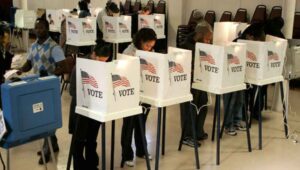
This bill would change Colorado’s law to say “only citizens” of the United States who are 18 years or older may vote in elections.
- A United States citizen is someone who was born in the U.S. or was granted citizenship through another way, like someone from another country who moves here and completes the citizenship process.
- Colorado currently says “every citizen” who is 18-years old may vote in elections and already bans non-citizens from voting.
People who agree say: Only citizens should vote. Words are important and other states with “weak” language like ours allow non-citizens to vote in some local elections. This bill will help avoid voter fraud, or voting by people who aren’t allowed to.
People who disagree say: This bill could scare some people who have the right to vote away from voting, like immigrants. Voter fraud is rare and this bill will only confuse people and cause less people to vote.
Amendment 77: Local Voter Approval of Gaming Limits in Black Hawk, Central City, and Cripple Creek

This bill gives local voters the power to make changes to their casinos like new games and higher bets. Money made will support community colleges.
- Colorado voted to make gambling legal in 1991, but made rules around the types of games allowed and how much money people can wager or bet.
- This bill gives the power to local voters to make changes to those old rules without statewide approval.
People who agree say: Local voters should get a say in these businesses that affect them. Allowing higher bets could attract more people and help local businesses make more money. It can raise more money for community colleges without raising taxes.
People who disagree say: Changing these rules could increase the amount and severity of people who struggle with gambling addiction. It does not provide any funding to programs to address this issue. Expanding gambling could hurt other Colorado communities who will not have a say in these changes.